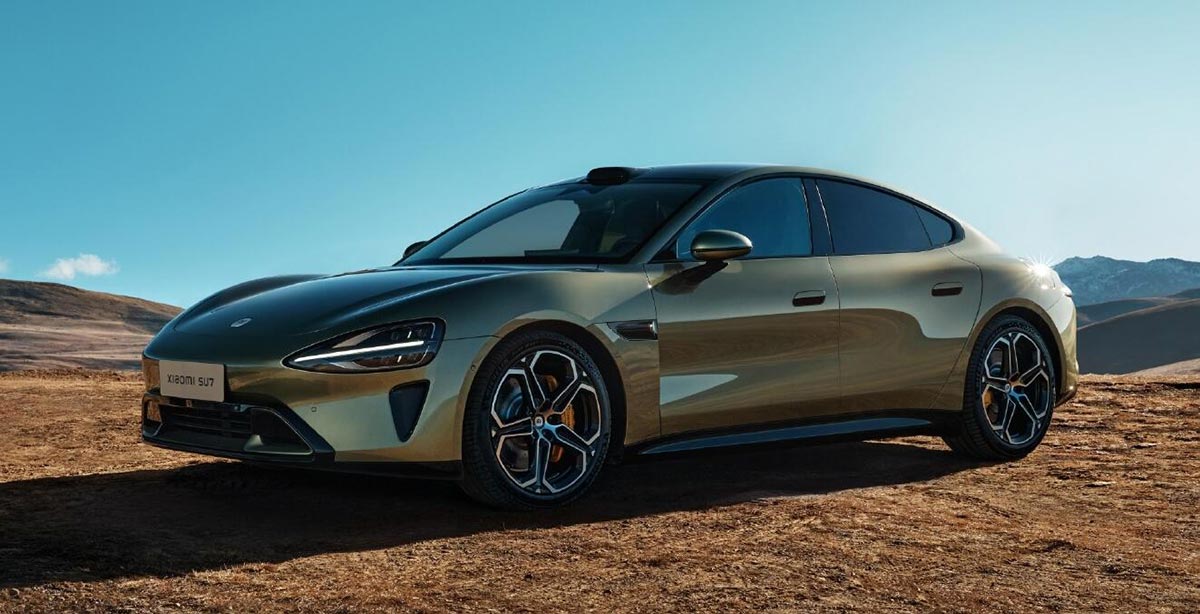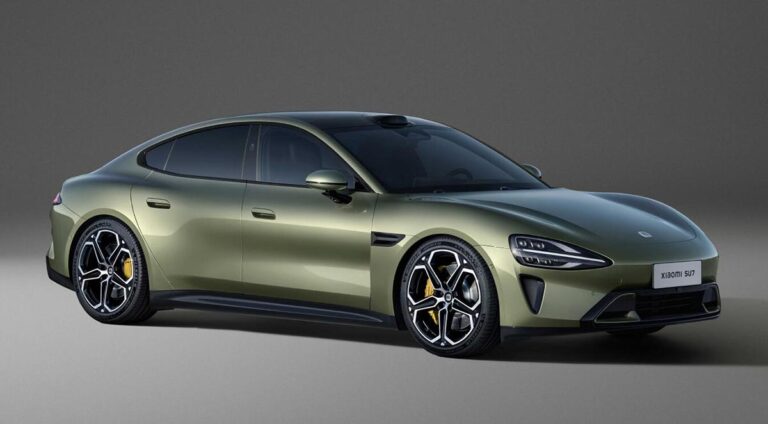When Xiaomi announced its entry into the car-making game in 2021, the only quality electric sedan available to Chinese consumers was basically the Tesla Model 3. But now, there's a long list of them.
(Image credit: Xiaomi EV)
Xiaomi (HKG: 1810, OTCMKTS: XIACY) said it's fully prepared for price war in China's electric vehicle (EV) sector, as its first model, the SU7, is set to hit the market on March 28.
Xiaomi is fully prepared for the current competitive environment in the EV industry on all fronts, the smartphone maker was quoted as saying by the Securities Times today.
Earlier today, Xiaomi announced that it will officially launch the SU7 electric sedan on March 28. The model made its debut on December 28 and the price is yet to be announced.
Unlike Xiaomi starting from zero in the phone space, Xiaomi EV needs to make something a bit more different, Securities Times quoted Lei Jun, Xiaomi's founder, chairman and CEO, as saying.
The most important thing for Xiaomi EV is really smart technology that meets people's real expectations of Xiaomi and new energy vehicles (NEVs), Lei said.
Xiaomi officially announced its entry into car-making on March 30, 2021, at a time when Chinese consumers did not have many excellent EV models to choose from.
In the EV sedan segment, the only mid-to-high-end model available in China in 2021 was essentially Tesla's (NASDAQ: TSLA) Model 3.
However, there are already a number of excellent models in the segment, such as the Shenlan SL03, which started deliveries in August 2022, the Nio (NYSE: NIO) ET5, which started deliveries at the end of September 2022, and the Zeekr 007, which began deliveries on January 1 of this year.
Other models include the BYD Han EV, the Xpeng (NYSE: XPEV) P7i, the Avatr 12, and the Rising Auto F7, not to mention more upcoming new models like the Jiyue 07, which is expected to be unveiled at next month's Beijing auto show.
In addition to the growing number of competing models, the price war in China's EV market continues, with a large number of new models offering lower prices along with better features.
Geely Auto Group launched the Galaxy E8, the first all-electric sedan in its Galaxy lineup, on January 5, a model that is about the same size as the Xiaomi SU7 but starts at just RMB 175,800 ($24,500).
The regular version of the Galaxy E8 is based on the 400 V platform, and the top-of-the-line version is based on the high-voltage 800 V platform. It measures 5,010 mm in length, 1,920 mm in width and 1,465 mm in height, with a wheelbase of 2,925 mm.
For comparison, the Xiaomi SU7 measures 4,997 mm in length, 1,963 mm in width and 1,440/1,455 mm in height and has a wheelbase of 3,000 mm.
Xiaomi did not mention if the SU7 is based on the 800 V platform across the board. Higher voltage leads to better energy performance and faster charging, but costs more for the parts.
Regarding the pricing of the Xiaomi SU7, Lei said in an interview with CCTV on January 22 that the price won't be RMB 99,000 or RMB 199,000, and may indeed be a bit expensive.
Local media outlet Jiemian cited an unnamed source from a major insurance company in a January 30 report that said the SU7's top-trim version would cost RMB 361,400 for the vehicle at the time of insurance purchase.
This means that the Xiaomi SU7's starting price will likely be between RMB 250,000 and RMB 370,000, Jiemian's report noted.
In addition, Securities Times cited Xiaomi Group president Lu Weibing in today's report as saying that there is no timeline for the Xiaomi EV to go on sale overseas.
Xiaomi wants the Xiaomi EV to make its technology solid in the domestic market first, so that it can minimize suffering unnecessary losses in overseas markets, Lu said.
($1 = RMB 7.1771)

